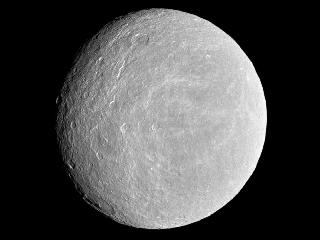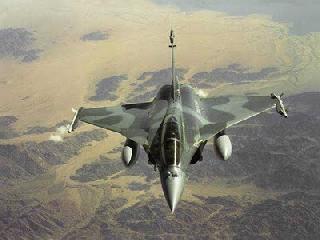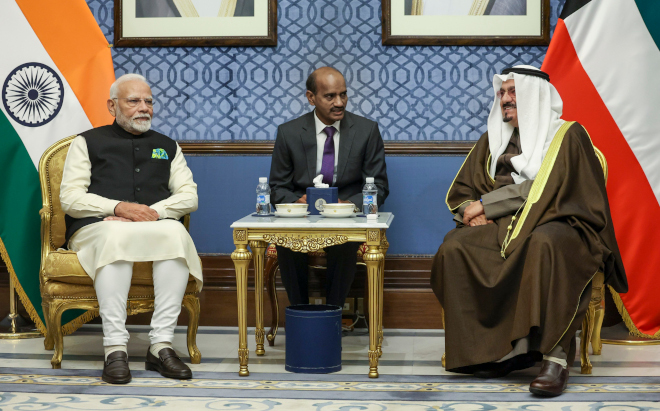
The cratered plains of Saturn's moon Rhea are visible in this image obtained by NASA's Cassini spacecraft. Photo: NASA
WASHINGTON (BNS): Astronomers have found a very tenuous atmosphere known as an exosphere, during a close flyby of Saturn's icy moon Rhea in March.
The atmosphere infused with oxygen and carbon dioxide was detected by NASA’s Cassini spacecraft which has been orbiting the Saturnian system since 2004.
This is the first time a spacecraft has directly captured molecules of an oxygen atmosphere – albeit a very thin one -- at a world other than Earth.
Oxygen at Rhea's surface is estimated to be about 5 trillion times less dense than what we have at Earth. But the new results show that surface decomposition could contribute abundant molecules of oxygen, leading to surface densities roughly 100 times greater than the exospheres of either Earth's moon or Mercury, NASA said.
The formation of oxygen and carbon dioxide could possibly drive complex chemistry on the surfaces of many icy bodies in the universe.
"The new results suggest that active, complex chemistry involving oxygen may be quite common throughout the solar system and even our universe," lead author Ben Teolis, a Cassini team scientist based at Southwest Research Institute in San Antonio, said.
“Releasing oxygen through surface irradiation could help generate conditions favorable for life at an icy body other than Rhea that has liquid water under the surface,” Teolis added.
According to the astronomers, if the oxygen and carbon dioxide from the surface could somehow get transported down to a sub-surface ocean, that would provide a much more hospitable environment for more complex compounds and life to form.
Scientists are keen to investigate whether life on icy moons with an ocean is possible, though they have not yet detected it.
 Previous Article
Previous Article Next Article
Next Article













The Indian Air Force, in its flight trials evaluation report submitted before the Defence Ministry l..
view articleAn insight into the Medium Multi-Role Combat Aircraft competition...
view articleSky enthusiasts can now spot the International Space Station (ISS) commanded by Indian-American astr..
view article